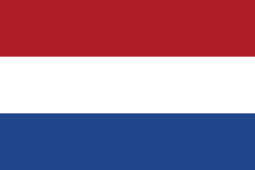The Development Of Electronic Surveillance Norms In The Netherlands
November 15, 2023
Executive Summary
- Agencies that conduct national-security surveillance. The Netherlands maintains technically capable intelligence services, several of which conduct electronic surveillance and SIGINT collection for national-security purposes.
- The Netherlands’ principal civilian service, the AIVD, investigates domestic threats to national security and collects foreign intelligence on civilian topics.
- The MIVD is responsible for foreign intelligence on military topics and as such supports the Dutch contributions to allied coalition forces.
- The Joint SIGINT Cyber Unit (JCSU), conducts SIGINT collection for both military and civilian purposes, as well as cyber operations, including hacking for foreign-intelligence purposes.
- Process for approving surveillance. Dutch law divides surveillance activities into “general powers,” such as informants and intelligence liaison, and more intrusive “special powers,” such as targeted hacking, real-time interception, and requests for stored data from providers.
- Most special powers must be approved by a minister.
- Requests to use more-intrusive special powers, including real-time interception and access to stored data, must also be approved by a non-judicial “independent review commission,” or TIB. The TIB consists of two retired judges and one technical expert.
- Some less-intrusive measures, such as requests for metadata and subscriber information, can be approved internally within the agency without ministerial or TIB approval.
- Only a few special powers require judicial approval. Opening physical letters or packages must be approved by a judge. Investigations that may involve attorney-client privilege or journalistic sources also require judicial sign-off.
- Bulk interception and hacking. Since 2018, Dutch law has allowed bulk interception of cable-bound communications and hacking against third parties (such as service providers) if needed to access the data of the intended target.
- In 2017, Dutch voters narrowly adopted a nonbinding referendum disapproving of these new powers. In response, parliament added a minimization requirement to the law. A 2020 commission recommended further reforms.
- Oversight. Dutch intelligence is supervised by two principal oversight bodies:
- The Oversight Commission for the Intelligence and Security Services, or CTIVD, which is independent of the services and ministers. The Commission has access to the buildings of the AIVD and its military counterpart, can question their employees, and can review their files, computer systems and archives. It periodically produces detailed public reports.
- The parliamentary Commission for the Intelligence and Security Services, or CIVD, was established in 1952 and was one of the first parliamentary oversight commissions in the world.




